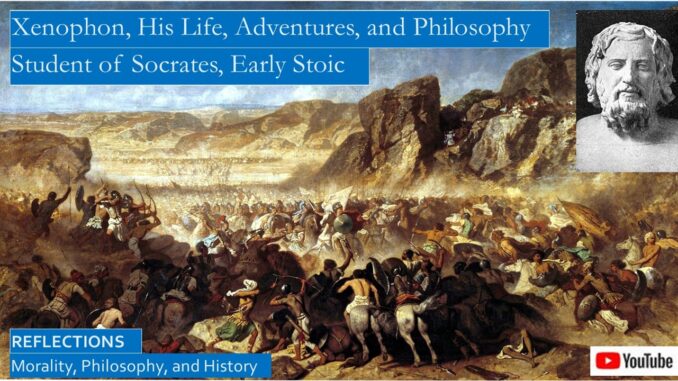
What can we learn by reflecting on the Life, Adventures, and Philosophy of Xenophon, who was both a general and a student of Socrates?
Why do many modern scholars ignore Xenophon’s philosophical works, while ancient and medieval scholars admired them?
Did Xenophon’s philosophical writings influence Stoic philosophy?
Why did the Athenians drive Xenophon into exile?
What was Xenophon’s relationship with Socrates and Plato? Why did he write his own version of several Platonic dialogues?
YouTube Script with more Book Links:
https://www.slideshare.net/BruceStrom1/the-life-adventures-and-philosophy-of-xenophon-general-and-student-of-socrates
YouTube video for this blog: https://youtu.be/lU59WBQu3bc
XENOPHON, SOCRATES, AND STOICISM
Xenophon was born around 430 BC in Athens to an aristocratic family, one of his works was Estate Manager, and he was an excellent horseman, he likely rode between the family estates with his father, quite likely they also hunted for meat and sport.[1] The Peloponnesian Wars ended around 413 BC, he must have fought in these wars, as his writings hint that he had battle experience, as all aristocratic citizens were expected to fight.
Was Xenophon a warrior, a historian, or a philosopher? Xenophon is one of the rare ancient authors whose entire corpus of major works have survived, putting him in the company of Plato and St Augustine, he was highly regarded among ancient and medieval scholars, though hyper-critical modern scholars tend to deprecate him. He was a student of Socrates and wrote several works featuring Socrates, including a fascinating collections of his Stoic-like sayings in the Memorabilia.
The Stoic Socrates of Xenophon
http://www.seekingvirtueandwisdom.com/the-stoic-socrates-of-xenophon/
https://youtu.be/LWfoHhtNY8I
One ancient historian, Diogenes of Laertius, in his Lives of Eminent Philosophers, prominently mentions Xenophon in his short life of Socrates, he said that Xenophon declared that Socrates was only interested in ethics. “Among those who succeeded Socrates were called Socratics, the leaders were Plato, Xenophon, and Antisthenes.” His short biography of Xenophon immediately follows that of Socrates in Book 2, though this may also be due to his desire to dedicate Book 3 solely to Plato. Antisthenes was the first of the Cynic philosophers who influenced Zeno and the Greek Stoic philosophers.
Diogenes also lists four other philosophers who were influential students of Socrates, the writings of three of the four exist in fragments, if at all. The fourth is Aristippus[2], founder of the Cyrenaic school of philosophy, known as ethical hedonism, which was similar to the Epicurean school that developed later, perhaps they influenced them. Though the teachings of Aristippus were rejected by other students of Socrates, you can argue that not only Platonic thought, but that also Stoic and Epicurean thought can be traced back to Socrates. Plato may have been the superior philosopher among Socrates’ students, but he was not the only philosopher, and he was not the only voice heeded by ancient Greeks.
Was Epicurus Really a Stoic-Lite Philosopher? Were all Epicureans hedonists?
Epicurus, Aristippus, and Lucretius: Were the Epicureans Stoic-Lite Philosophers?
http://www.seekingvirtueandwisdom.com/was-epicurus-really-a-stoic-lite-philosopher-were-all-epicureans-hedonists/
http://www.seekingvirtueandwisdom.com/epicurus-aristippus-and-lucretius-history-of-epicurean-philosophy/
https://youtu.be/49Qv3Be86Jw
There is another link between Xenophon and the Cynic philosophers, who greatly influenced the Greek Stoic philosophers. According to Diogenes of Laertius, in his Lives of Eminent Philosophers, Zeno, the founder of Greek Stoicism, found himself in Athens after being shipwrecked. He heard a bookseller reading aloud the second book of Xenophon’s Memorabilia, the sayings of Socrates, “and Zeno was so pleased that he asked where such men could be found. At that very moment Crates,” a Cynic philosopher, “happened to be walking past. Pointing him out, the bookseller said, ‘Follow him.’ From then on, he studied with Crates, proving himself suited for philosophy, though he was bashful about adopting Cynic shamelessness.”[3] Crates was a student of the famous Cynic Diogenes of Sinope[4], who was in turn a student of Antisthenes, a leading student of Socrates[5].
Zeno: First Greek Stoic Philosopher
http://www.seekingvirtueandwisdom.com/diogenese-on-the-greek-stoic-zeno-of-citium/
https://youtu.be/STxpGlkFyvs
Greek Cynic Philosophers
http://www.seekingvirtueandwisdom.com/diogenes-and-the-greek-cynic-philosophers/
https://youtu.be/zAAal5p8AX8
Ancient and modern scholars credit Zeno as the father of Stoicism, with a capital “S”. But Zeno was influenced by the warrior culture he lived in, illustrated by the Iliad, a world where instead of looking forward to retirement, citizens worried whether a hostile invader would defeat and plunder their city-state, execute all military age men, and enslave the women and children. In this climate, the very concept of a conscientious objector would be simply absurd. Stoics taught that life was cruel and unfair, we cannot complain, but rather endure our sufferings without bitterness, conquering calamities with virtue. We argue that stoic philosophy, with a small “s”, is the default philosophy of the ancient world, and that Platonic philosophy also reflected the tendencies of a warrior culture.
The Iliad, the Basis of Greek Culture and the Western Philosophical Tradition
http://www.seekingvirtueandwisdom.com/iliad_blog01/
https://youtu.be/DpmuhZJUJn0
The Warrior Cultures of the Iliad and the American Indian, Bravely Visiting the Enemy Camp
http://www.seekingvirtueandwisdom.com/iliad-blog-3-visiting-the-enemy-camp-greeks-vs-indians/
https://youtu.be/ynIx-AVI2f8
Concubines in the Iliad, Old Testament and Christian Tradition
http://www.seekingvirtueandwisdom.com/iliad_blog02/
http://www.seekingvirtueandwisdom.com/the-iliad-blog-4-briseis-chryseis-arent-all-concubines-the-same/
https://youtu.be/bGHHD7XTvr0
The Iliad of Homer: Glory, Honor, Madness and Futility of War
http://www.seekingvirtueandwisdom.com/the-iliad-blog-5-the-tide-of-battle-turns-against-the-greeks/
http://www.seekingvirtueandwisdom.com/the-iliad-blog-6-embassy-to-achilles-oration-failed-meeting/
http://www.seekingvirtueandwisdom.com/the-iliad-blog-7-the-deaths-of-patroclus-and-hector/
https://youtu.be/7lI2ZQ50wRc
The historian Robin Waterfield speculates that Xenophon, as a young student in Athens, “learned that the gods valued dutifulness towards one’s community, hospitality towards strangers, respect for elders and care for parents, kindness towards friends and reasonable hostility towards enemies, and that they would punish criminals and humble the proud. The cardinal virtues of Geek men were personal integrity, self-restraint, or knowing one’s place in society, piety towards one’s human and superhuman superiors, shrewdness and courage.”[6] “Xenophon’s Socrates became the model sage for the Stoics.”
According to Robin Waterfield, Xenophon believed that “a truly good person who has earned the epithet ‘good and beautiful,’ a compound word in Greek,” must be “self-sufficient, to be free rather than in servile dependence on others for one’s livelihood, self-esteem, actions, feelings and opinions.”[7]
Many of these moral qualities were found in Homer’s Iliad and Odyssey, and other Greek works such as Works and Days by Hesiod.
Odyssey of Homer: Xenia, the Need for Hospitality
http://www.seekingvirtueandwisdom.com/odyssey-blog-1-waiting-those-very-long-years-for-odysseus/
http://www.seekingvirtueandwisdom.com/odyssey-blog-2-odysseus-sings-his-adventures/
http://www.seekingvirtueandwisdom.com/odyssey-blog-3-odysseus-returns-home-to-ithica/
http://www.seekingvirtueandwisdom.com/odyssey-blog-4-the-slaughter-of-the-suitors/
https://youtu.be/bUW4ZT9zpt8
Hesiod: Works and Days, Early Greek Moral Philosophy
https://seekingvirtueandwisdom.com/hesiod-works-and-days-early-greek-moral-philosophy/
https://youtu.be/HH9t2eTh8RE
PLATO, XENOPHON, AND THE END OF THE PELOPONNESIAN WARS
Modern scholars view Xenophon as an indispensable ancient historian rather than as a philosopher. Unfortunately, the masterful Greek historian Thucydides abruptly ends his history of the Peloponnesian Wars in the last phase of the war mid-sentence in mid-chapter. Xenophon begins his History of My Times with the words, “after these times,” picking up where Thucydides left off.
Why did Athens lose the Peloponnesian Wars? In chess there is a saying that the winner is he who commits the next to last mistake. One fatal mistake the Athenian democracy made was when its generals won a major naval battle, but many Athenian sailors drowned in a sudden storm after the battle, and their bodies were never recovered. The Athenian Assembly then executed many of these generals for this outrage, they were enraged because in ancient Greek religion, souls of bodies not respectfully buried were doomed to wander the earth, eternally barred from Hades. The inexperienced generals replacing them were as timid as they were incompetent, the Spartans caught their triremes unguarded on the beaches. They destroyed the triremes and massacred the Athenian rowers. later forcing the hapless city of Athens to surrender.
Comeback of Alcibiades in Peloponnesian War, according to Plutarch, Thucydides, and Xenophon
https://seekingvirtueandwisdom.com/comeback-of-alcibiades-in-peloponnesian-war-according-to-plutarch-thucydides-and-xenophon/
https://youtu.be/b7QLp1HrOMs
Spartan Lysander Shows Mercy on Athens, Ending the Peloponnesian Wars
https://seekingvirtueandwisdom.com/spartan-lysander-shows-mercy-on-athens-ending-the-peloponnesian-wars/
https://youtu.be/giNzqNoOH3Y
After the end of the Peloponnesian Wars Lysander, the victorious Spartan general, set up an oligarchy of Thirty Tyrants to replace the radical democracy of Athens. Since Xenophon was both an eyewitness to these events and an aristocrat, he was able to provide a detailed account of these intrigues. This period has been compared to the bloody episode of the French Revolution. The Thirty Tyrants, led by Critias, a former student of Socrates, started a campaign of terror, executing many of their democratic enemies, and then executing their fellow aristocrats simply so they could seize their property.
Civil war erupted and the tyrants were overthrown, and Sparta declined to intervene, unwilling to support this bloody hubris. Xenophon likewise condemned the Thirty Tyrants, Robin Waterfield says it best: “the brutality of the oligarchs alienated him as thoroughly as the inefficiency of the democracy: ideologically, he had no home in Athens, and that is why he seized the opportunity for adventure in the east.”[8]
Thirty Tyrants Ruling Athens After Spartan Victory in the Peloponnesian Wars
https://seekingvirtueandwisdom.com/thirty-tyrants-ruling-athens-after-spartan-victory-in-the-peloponnesian-wars/
https://youtu.be/rrcwdHyvIEg
SOCRATIC DIALOGUES BY XENOPHON AND PLATO
You cannot understand the Platonic dialogues if you do not understand the history of the Peloponnesian Wars, many of the major dialogues either reference historical figures in this conflict, or they offer commentary on the war.
Xenophon wrote his own version of the Platonic dialogues on the Trial and Execution of Socrates, and the Symposium, the dinner party with speeches on the nature of love. When we reflected on the two dialogues, we read Xenophon’s account first, in part because Stoic philosophy is easier to understand than Platonic philosophy, and perhaps it is more historically accurate. Xenophon assuredly read Plato’s dialogues before he wrote his own version, he is not interested in rebutting Plato’s dialogues, but rather he simply wants to publish his own perspective on these dialogues. Xenophon and stoicism emphasize ethics more affirmatively than does Platonism, Stoicism is more concerned with the question: How can we live a godly life?
Many of the students of Socrates were aristocrats who were wary of the radical democracy of Athens, where demagogues often followed the popular opinion of mob rule, and many were admirers of the Spartan system of government. Socrates’ reputation was further damaged by the fact that the chief tyrant, Critias, was a student of Socrates, as was Alcibiades, whom many unfairly blamed for Athens losing the Peloponnesian Wars.
Pondering the Death of Socrates in Xenophon, Plato, and Aristophanes
http://www.seekingvirtueandwisdom.com/pondering-the-death-of-socrates-in-xenophon-plato-and-aristophanes/
http://www.seekingvirtueandwisdom.com/trial-of-socrates-in-apology-and-crito-blog-1/
http://www.seekingvirtueandwisdom.com/sentencing-and-execution-of-socrates-in-apology-and-crito-blog-2/
https://youtu.be/Mip1vgRKH1E
The two dialogues on the Symposium, or dinner or drinking party, in both Plato and Socrates, have Socrates delivering the last speech on love, and the Platonic version of the speech is more memorable. Both Symposiums are set in the time preceding the Thirty Tyrants, long before the end of the Peloponnesian Wars, since Alcibiades crashes the party in the Platonic version. The guest list differs in the two dialogues, but both guest lists include both future Tyrants and also victims who were executed during the time of the Thirty Tyrants.
Pederasty, or men-boy love, was part of Greek culture, though many fathers, such as Lycon in Xenophon’s Symposium, were protective of their young sons, and were not open to older men flirting with their children. Although Plato’s Socrates is more tolerant of pederasty than was Xenophon, he prefers the divine love of philosophy. When Alcibiades crashes the Platonic Symposium dinner party, he proclaims how Socrates many years earlier had rejected his advances, how Socrates only loved him as a student, teaching him virtue and the divine love of philosophy, earning the respect of his wayward student.
Xenophon and Plato, Socratic Dialogue, Symposium, Romantic and Carnal Love, Part 1
https://seekingvirtueandwisdom.com/xenophon-and-plato-socratic-dialogue-symposium-romantic-and-carnal-love-part-1/
https://youtu.be/OIe5pn2S1Ls
Xenophon and Plato, Socratic Dialogue, Symposium, Divine and Noble Love, Part 2
https://seekingvirtueandwisdom.com/xenophon-and-plato-socratic-dialogue-symposium-divine-and-noble-love-part-2/
https://youtu.be/z6X3pwVTdrc
(We will record a video summarizing the Platonic dialogues on love and pondering the question of homosexuality and pederasty, or men-boy love, in ancient Greece.)
We became aware how many in the ancient world respected Xenophon when studying the works of St Justin Martyr. Justin said he did not approve of stoic teaching, but he did not say why, perhaps he was only familiar with the Greek Stoics, who were known for their libertine attitudes, according to Diogenes. Perhaps Justin was not aware of the writings of Epictetus, who preceded Justin by a decade or two. But Justin was impressed by the stoic writings of Xenophon, retelling the story of how the Greek hero Hercules was asked to choose between the virtues and temptations of Lady Virtue and Lady Vice, we compared Justin’s retelling to the original by Xenophon.
St Justin Martyr’s Second Apology to Senate, Quoting Xenophon’s Socrates, Blog 2
http://www.seekingvirtueandwisdom.com/justin-martyr-second-apology-and-socrates/
https://youtu.be/-E3r8Z4IE1c
XENOPHON BECOMES A STUDENT OF SOCRATES
How did Xenophon become a student of Socrates? Diogenes of Laertius says that “Xenophon was modest and extraordinarily handsome. Socrates met him in a narrow lane, extended his staff and blocked his path, inquiring where each kind of food was being sold,” he was likely testing his courtesy. He then asked, “’Where do men become good and honorable?’ Xenophon was perplexed, and Socrates said, ‘Follow me, then, and learn.’ From then on, he was a student of Socrates.”[9]
We are reminded how Jesus recruited the disciples when he said, “Come, follow me.” Perhaps this was a common refrain for philosophers in the ancient world. In the ancient world, philosophy was primarily concerned with virtue, or how to live a godly life.
Robin Waterfield commented that “Xenophon was quick to learn from Socrates the ideal of self-sufficiency built on self-discipline, not least because he could readily harmonize this concept of virtue with the Spartan values he was more and more coming to admire.”[10]
The younger son of King Darius III, Cyrus the Younger, generously funded the Spartan’s efforts to win the Peloponnesian Wars. After the war, after the affair of the Thirty Tyrants, and after the death of his father the king, he asked Sparta to supply mercenary troops in his efforts to seize the throne from his brother, now crowned as King Artaxerxes. Xenophon was asked to join this endeavor, but he first asked Socrates for his input.
Xenophon remembers that “Socrates thought that friendship with Cyrus” might be unwise, as the Athenian officials “believed that Cyrus wholeheartedly supported the Spartans against the Athenians” in the last phase of the Peloponnesian Wars, where Athens was defeated. “Socrates advised Xenophon to go to Delphi and consult the god about whether or not he should go.”
Instead, “Xenophon asked Apollo which of the gods should receive his sacrifices and prayers to ensure that the journey he had in mind would go honorably and well, and to guarantee a safe return after a successfully completed endeavor, and in his response, Apollo named the gods to whom he should sacrifice.” Socrates was not pleased that Xenophon changed the question posed to the gods but did give him his blessing.[11]
THE GREEKS WON THEIR BATTLE, BUT THEIR PATRON CYRUS WAS KILLED
Cyrus deceived the Greek troops; he did not tell them the real purpose of their endeavor until they were so deep in Persian territory that they could not return to Greece. They marched for months from the west coast of Asia Minor, today’s Turkey, to do battle near the desert city of Babylon. The Ten Thousand Greek mercenaries dominated the battlefield; as the sun set, they thought they were on the winning side.
Generations later, Alexander the Great would win the key battles when he and his bodyguard charged and spooked the opposing Persian King Darius III, who fled. But in this battle, when Cyrus the Younger and his bodyguards charged his brother King Artaxerxes’ contingent, although Artaxerxes was wounded, the wound Cyrus suffered was more serious, and he died on the battlefield. Often history is determined by chance and luck.
XENOPHON ENCOURAGES AND LEADS THE ARMY OF TEN THOUSAND GREEKS
These victorious Greeks were stuck in the middle of Persia, thousands of miles from home, with no supplies since their baggage train had been looted. The Persians feared to attack these formidable warriors, they were escorted North by the Persian forces of Tissaphernes, Persian satrap and former friend of Alcibiades, heading for the Greek colonies on the shores of the Black Sea. One night the Athenian commander foolishly agreed to attend a Persian banquet with other Greek generals and commanders, plus two-hundred other troops who were going to buy supplies from the Persians.
These Greeks were ambushed, some were slaughtered immediately, others were slaughtered later. The Greeks were despondent, but Xenophon rallied them, reminding them how greatly the Persians feared Greek hoplite warriors, reminding them how often they defeated the Persians in battle, urging them to elect new generals and commanders to replace those who were lost to treachery, winning the role of the leading general unanimously. Robin Waterfield says it best: “Readers of the Expedition of Cyrus see Xenophon mature in the course of the expedition, as he discovered, with the pleasure that always accompanies the emergence of competence, his native courage and capacity for command.”[12] Not only did he inspire his men, but Xenophon also adapted the typical hoplite battle tactics to the unique challenges posed by a constant retreat, facing foes in mountain passes, as they headed for home.
Finally, when they reached a mountain pass from which they spied the Black Sea, they rejoiced, hugging each other, shouting ecstatically: “Thalassa! Thalassa! The Sea! The Sea!”
Xenophon’s Anabasis: The Persian Expedition, an Ancient Adventure Story
https://seekingvirtueandwisdom.com/xenophons-anabasis-the-persian-expedition-an-ancient-adventure-story/
https://youtu.be/DBG3JvyLP1E
XENOPHON: QUALITIES OF A SUCCESSFUL RULER
We recommend that you read Xenophon’s biography of the founder of the Persian Empire, Cyrus the Great, before you read the Anabasis, the adventures of the Ten Thousand, where Cyrus the Younger, many generations later, failed to usurp the Persian throne. The ancient Greek historian Thucydides proclaims that the speeches of the great men in his history were either their words recorded by posterity or were the words they ought to have said. Xenophon’s biography of Cyrus the Great included many sayings, and most of the sayings reflected Xenophon’s stoic teachings. Xenophon was fond of hunting and horsemanship, as was Xenophon’s Cyrus the Great. Xenophon viewed Cyrus the Great as the ideal king, and he opined that perhaps Cyrus the Younger would have lived up to these ideals had he survived the battle triumphant.
Xenophon’s Cyropaedia, Biography of Cyrus the Great, King of Persia
https://seekingvirtueandwisdom.com/xenophons-cyropaedia-biography-of-cyrus-the-great-king-of-persia/
https://youtu.be/E4BFSIpHHGk
Xenophon’s Cyropaedia, Moral Sayings of Cyrus the Great, King of Persia
https://seekingvirtueandwisdom.com/xenophons-cyropaedia-moral-sayings-of-cyrus-the-great-king-of-persia/
https://youtu.be/Y3ULbvPEmik
We were able to derive four short videos of collections of sayings by Xenophon’s Cyrus from these long-form videos:
Xenophon’s Cyrus the Great, Stoic Moral Sayings
https://youtube.com/shorts/TQKJb-hGmKY
Xenophon’s Cyrus the Great, Stoic Military Sayings
https://youtube.com/shorts/n1AdexnPUj4
Xenophon’s Cyrus the Great, Stoic Sayings on Monarchy
https://youtube.com/shorts/YQgLm5VSIr8
Xenophon’s Cyrus the Great, Sayings on Love
https://youtube.com/shorts/Q2F4cPdHAbU
Although Xenophon does include some moral lessons in his Anabasis, many of the leadership lessons he learned when leading the Ten Thousand out of Persia while fighting the Persian forces are repeated in the many moral sayings in his biography of Cyrus the Great, or the Cyropaedia.
Robin Waterfield summarizes the moral maxims from many of the works of Xenophon: “Successful rulers, in Xenophon’s opinion, know how to care for the interests of their subjects better than the subjects themselves; they lead by example, with aristocratic self-confidence, showing flexibility and imagination,” seeking the “common good and safety of their subjects, and strong enough to stand up to aggression and wrongdoing. Such a leader is immediately attractive to his subjects, who respect and honor him, and willingly obey him.”
Robin Waterfield continues, “Willing obedience is best, but in emergencies,” “compulsion or emulation or a sense of shame or duty” may be necessary. “The vertical virtue of obedience” is achieved by “instilling discipline in subordinates, and the horizontal virtue is being able to work with others. This raises morale,” which is key to “military success.”
Robin Waterfield continues, “A good leader needs” “courage, intelligence, tactical and strategic skill, self-discipline and piety; the ability to act slyly; accessibility to his men, and knowledge of their strengths and weaknesses; the ability to negotiate with foreigners.” “Self-discipline is the most crucial, because as a good Socratic, Xenophon saw self-discipline as the foundation of all moral virtue, including the ability to do good to others.”
Robin Waterfield continues, But “deficient leaders lack the determination and strength of moral certainty. They fail to find the proper balance between coercion and the instilling of willing loyalty; they are too swayed by personal motivations; they do not tell men off when they are making mistakes but buy them off with rash promises they cause division in the army; and they ignore the omens sent by the gods.”[13]
What was Xenophon’s attitude towards seers who sought the blessings of the gods before a battle? It was common practice for a seer to slaughter a sacrificial animal before an important battle to see if the entrails revealed whether the gods would send a good omen. Xenophon, if he received a bad omen before a battle, would order the slaughter of another animal, then another one, then another one, until the gods gave him a good omen.
XENOPHON RETURNS TO SPARTA AND RETIRES
By the end of their adventures, the forces of the Ten Thousand Greeks were whittled down to over eight thousand who survived their travels and travails of their adventures as they traveled along the shores of the Black Sea. The booty and plunder that Xenophon acquired as commander of the Greek forces made him a wealthy man. When they arrived near where they started on the coast, most of the Ten Thousand joined the Spartan forces facing the Persian satraps in Ionia.
However, Xenophon was exiled by Athens, and his estates had been seized. In the words of Robin Waterfield, “the final straw for the Athenians would have been Xenophon’s return from Asia with the Spartan king Agesilaus and his presence, if not his actual participation, on the Spartan side at the battle of Coronea in 394 BC, where the Spartans and their allies beat the army of a confederacy that included Athens.”[14]
In gratitude for his years of service, Sparta granted him freedom of the city of Sparta, and settled him on an ample estate with ample slaves near Scillus, which is near Olympia in the western Peloponnese. Here he settled down and raised his two sons, Diodorus and Gryllus. Likely his sons participated in the military training all Spartan youths participated in[15], though he likely ensured that tutors provided them with the liberal education he received as a young Athenian.
Unique Spartan Warrior Culture and History, Plutarch’s Life of Lycurgus, Lawgiver of Sparta
Sparta: Quotes from Plutarch, Herodotus, Thucydides, and Xenophon
https://seekingvirtueandwisdom.com/unique-spartan-warrior-culture-and-history-plutarchs-life-of-lycurgus-lawgiver-of-sparta/
https://youtu.be/_hYwZsxmC3s
His estate at Scillus was seized after the Thebans defeated the Spartans in 371 BC,[16] freeing the captive helot serfs, permanently weakening the Spartan state. Diogenes suggests that he moved to Corinth, where he died.[17] As alliances shifted, Athens and Spartans were either allies or enemies. A decade later in 360 BC his exile from Athens was revoked. Both his sons served in the Athenian cavalry. After Gryllus died, Diogenes tells the story that “Xenophon was offering a sacrifice, with a garland on his head, when the news came of his son’s death. On hearing the news, he took the garland off, but when he was told that his son had died nobly in battle, he put it back on again.”[18]
LASTING CONSEQUENCES OF XENOPHON’S ANABASIS
What did the Greeks learn from the Anabasis of Xenophon? If a Greek mercenary army could fight its way through the heart of the Persian Empire, through territories of mountain tribes that had formerly decimated Persian forces, forging their way through to the friendly shores of the Black Sea, this meant that the Persian Empire was weak and ripe for the taking.
Soon the Spartan King Agesilaus would invade Persia, though he was not successful. But several generations later, King Phillip II of Macedon, after defeating and uniting the Greek mainland, planned to invade the Persian Empire before his assassination. But Alexander the Great would realize his father’s ambitions, conquering Persia, using the tactics originally employed by Xenophon’s Cyrus the Great, and also conquering part of the Indian subcontinent, stopped only by the mutiny of his army, who were homesick for Macedonia. It was no coincidence that the Roman historian Arrian would also title his history of these conquests, the Anabasis of Alexander.
We like to keep in mind when main characters lived and died. We know that Aristotle was a student of Plato, Aristotle was quite young while Plato was quite mature, and that Plato and Xenophon lived at roughly the same time. We also know that Aristotle was the royal tutor for Alexander the Great. Alexander died roughly seventy years after Xenophon, so they were roughly two or three generations apart.
Alexander the Great may have slept with a copy of the Iliad under his pillow, but during the day he assuredly studied Xenophon’s Anabasis and Cyropaedia, the biography of Cyrus the Great.
DISCUSSING THE SOURCES
Robin Waterfield composed fresh, readable translations of many Greek and Roman classics. We used Robin Waterfield’s book, Xenophon’s Retreat, Greece, Persia, and the End of the Golden Age, to discover additional insights into the life of Xenophon. His bibliography has descriptions of the major sources he used for his book. His footnotes only include references to the works of the ancient sources, but not the modern sources, you need to search through the books in the bibliography for his modern sources. After this video, we will release a video on his additional insights into the Xenophon’s Anabasis and other events in the history of the Greco-Persian and Peloponnesian Wars.
Why didn’t Plutarch include Xenophon in his Lives of Eminent Greeks? In one of his lives, he does reflect on the life of King Artaxerxes, who triumphed over Cyrus the Younger. Plutarch did treasure Xenophon as a source for his other lives, crediting him often, but maybe since Xenophon’s major military achievement was surviving a defeat and thousand-plus mile retreat, his achievements did not immediately impact Greek history.
We also plan videos on the life of King Agesilaus using his life written by both Xenophon and Plutarch, and the wars that were fought after Greece recovered somewhat from the wreckage of the Peloponnesian Wars. These wars weakened the Greeks sufficiently to permit King Philip II of Macedon and his son Alexander the Great to later conquer all of Greece.
Since all our videos on ancient Greek history use many of the same sources, we have a video on Book Reviews of ancient Greek history.
Book and Lecture Reviews of Ancient Greek History and Philosophy
http://www.seekingvirtueandwisdom.com/book-and-lecture-reviews-of-ancient-greek-history-and-philosophy/
https://youtu.be/472aVKkPsk8
[1] Robin Waterfield, Xenophon’s Retreat, Greece, Persian, and the End of the Golden Age (Cambridge, Massachusetts: Belknap Press of Harvard University Press, 2006), pp. 37-39.
[2] Diogenes of Laertius, Lives of Eminent Philosophers, translated by Pamela Mensch (New York: Oxford University Press, 2018), Socrates, Book 2, Chapter 47, p. 86.
[3] Diogenes of Laertius, Lives of Eminent Philosophers, Zeno, Book 7, Chapters 2-3, p. 312.
[4] Diogenes of Laertius, Lives of Eminent Philosophers, Crates, Book 6, Chapters 85-88, pp. 299-301.
[5] Diogenes of Laertius, Lives of Eminent Philosophers, Diogenes, Book 6, Chapter 21, p. 271.
[6] Robin Waterfield, Xenophon’s Retreat, p. 40.
[7] Robin Waterfield, Xenophon’s Retreat, p. 188.
[8] Robin Waterfield, Xenophon’s Retreat, p. 51.
[9] Diogenes of Laertius, Lives of Eminent Philosophers, Socrates, Book 2, Chapter 45, p. 86.
[10] Robin Waterfield, Xenophon’s Retreat, p. 45.
[11] Xenophon, The Expedition of Cyrus, Robin Waterfield, translator, Book 3, Chapter 1, pp. 55-60.
[12] Robin Waterfield, Xenophon’s Retreat, p. 51.
[13] Robin Waterfield, Xenophon’s Retreat, p. 145, he lists the original sources as Expedition of Cyrus (the Younger), the Education of Cyrus (the Great), On Cavalry Command, Hiero 8-11, Recollections of Socrates 3.1.6 and 3.9.10, On the Management of an Estate 21.4-8.
[14] Robin Waterfield, Xenophon’s Retreat, p. 53.
[15] Robin Waterfield, Xenophon’s Retreat, pp. 180-181.
[16] Robin Waterfield, Xenophon’s Retreat, p. 184.
[17] Diogenes of Laertius, Lives of Eminent Philosophers, Xenophon, Book 2, Chapter 56, p. 91 and Robin Waterfield, Xenophon’s Retreat, p. 196.
[18] Robin Waterfield, Xenophon’s Retreat, p. 195 and Diogenes of Laertius, Lives of Eminent Philosophers, Xenophon, Book 2, Chapters 54-55, pp. 90-91.

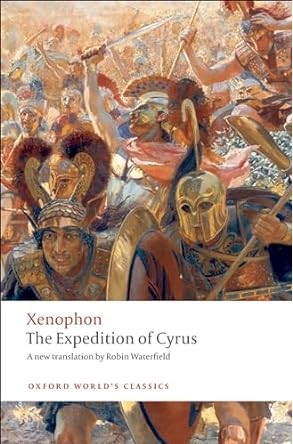
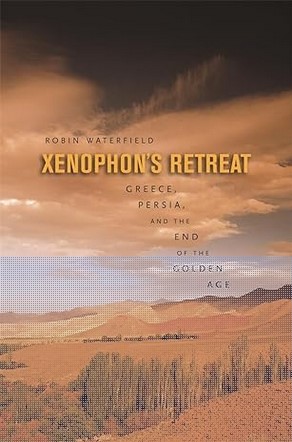

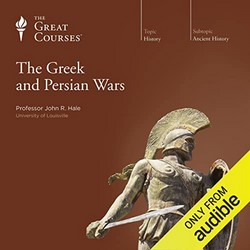

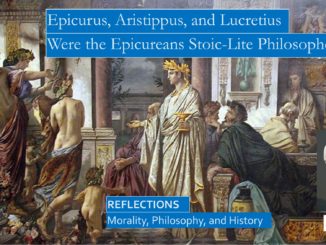
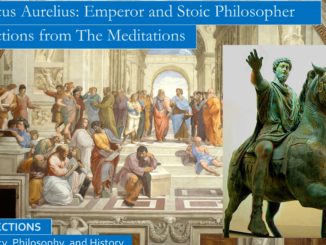
Be the first to comment